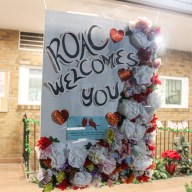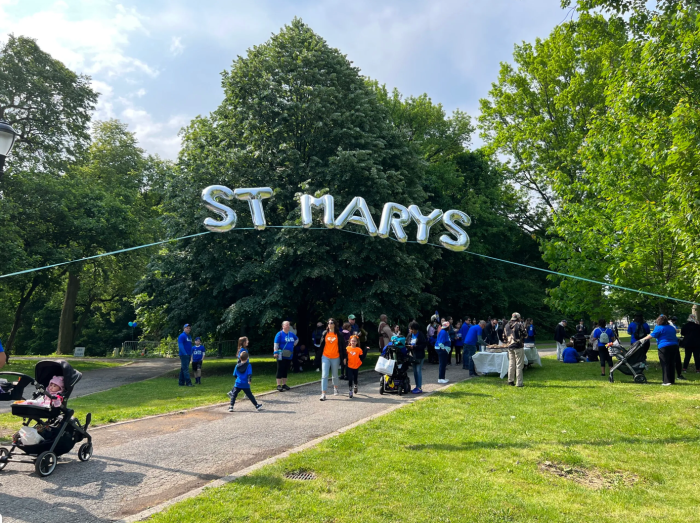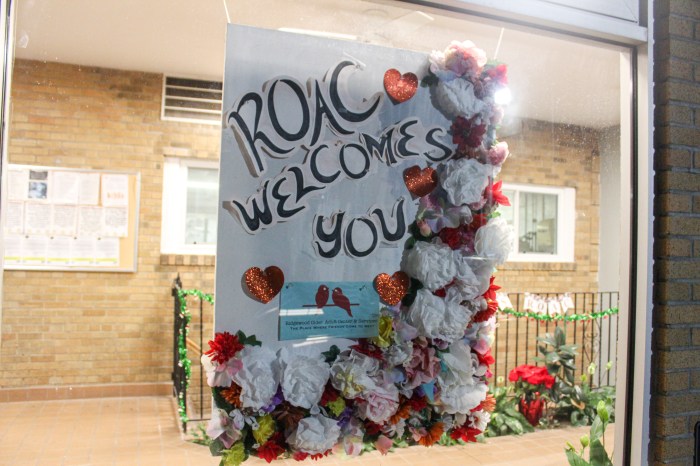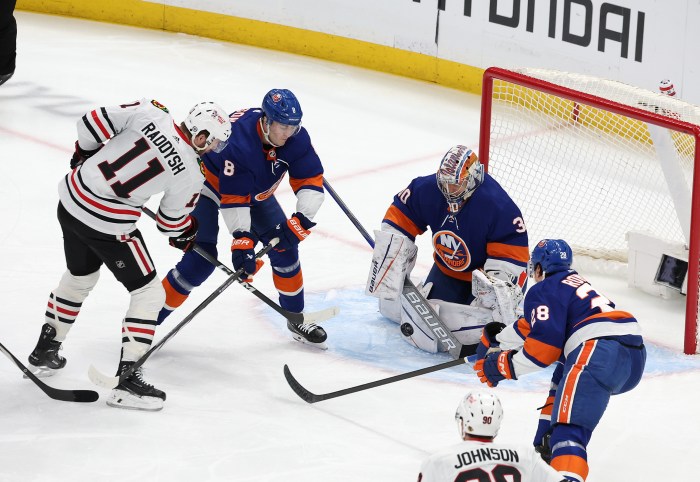By Mitch Abramson
That's great, but with the Olympic team already decided and Greene on the outside looking in, he's kind of running out of challenges in the amateurs. He lost a razor-thin decision to Andre Dirrell in the Olympic trials 16-13 in February Ñ a verdict that could have gone either way and was his first loss in a year. Otherwise, the 18-year-old resident of Jamaica would have been off to Athens with a chance at winning gold, armed with a possible million dollar contract and the world in the palm of his hands.Instead he is in this sweat box gym, empty except for a couple of old fight posters on the wall and a dilapidated looking ring in the corner. “Go downstairs; it's too hot up here,” his father, Joe Greene Sr., 42, and his trainer, is begging him now, the heat in the dry room unbearable to take. His son, never turning away from his own reflection, shakes him off and continues throwing imaginary punches, never stopping, while the noisy sounds of Jamaica Avenue echo in the background. Or maybe the cluttered sounds coming from the street are the mixed messages of the boxing industry, telling young fighters to turn pro one moment and the next discouraging them because, unless they can sell tickets and have an Olympic medal behind them, finding money in the pro ranks is like finding a needle in a haystack. And that was four years ago when Olympians like Ricardo Williams Jr. and Francisco Bojado burst onto the scene with huge signing bonuses in their hands, only to flounder in the pros. Williams, having lost his second fight, a split-decision defeat in virtual anonymity last April, is now a non-factor in the junior welterweight division, while Bojado's stock, after recently dropping a decision to Jesse James Leija on HBO, has almost bottomed out. “The professional ranks are no place to develop a fighter,” said Lou DiBella, a New York-based fight promoter who signed Williams out of the Olympics and was bitten by the experience. “You don't see a lot of kids fighting on television who are 0-0. If I had to give him any advice, it would be to stay in the amateurs. I've heard good things about him, but unless his family is under financial duress, and he has to turn pro, I would keep doing what he's doing. He's only 18.”The southpaw Greene has an amateur resume that looks like the end of a career instead of the beginning because of the number of accomplishments. In 2003 and 2004, he won the New York City Golden Gloves and in 2004, the National Golden Gloves, collecting the Golden Boy award for the tournament's outstanding fighter. Currently, Greene is the top ranked 165-pound fighter in the Under-19 division, a member of USA Boxing's Elite Team, which qualifies him for international competitions. All told, since the age of 8 when he began competing, the Hillcrest High grad estimates that his record is 180-4 with about 100 knockouts. “He walks through whoever he fights,” said Ramon Zaragoza, an amateur fighter from Manhattan who recently won gold at the Empire State Games in the 141-pound division. “Even [commentator and trainer] Gill Clancy said on television during the Golden Gloves finals that he is too strong for the amateurs.” “He's the future of the 165-division,” said Johnnie Woluewich, head of USA Boxing Metro. “But I don't want him thinking that it's going to be easy for him now. If he thinks that he can just step into the ring and just win because he is Joe Greene- that won't work. He has to stay focused.””I've seen him fight a number of times,” said Bruce Silverglade, the owner of Gleason's Gym and a fight agent. “He's a real tough kid; he has a lot of potential. I could see how a lot of matchmakers and promoters would want to get their hands on him.”But Greene and his father, who measures his son's career every step of the way, are in no hurry to turn pro, nor are they the conventional sports family. During a sparring session at Gleason's Gym against junior welterweight Andre Eason earlier this year, the intensity level skyrocketed to the point where the action degenerated into a street fight. His mother, fearing the worse, pulled him out of the ring in the middle of the round. “She saw a reason for me to get out of the ring,” he said. “I guess I was getting a little frustrated because he was doing some crazy stuff on the ropes. She was afraid that something was going to happen.”It's not the first time his parents have pulled him out of competitions. His father took him off August Martin's Junior Varsity football team because he was concerned that he might get injured. Greene spent three years at August Martin before leaving for Hillcrest because of personal reasons.His father has also sacrificed a lot to further his son's career. When Greene prepared for a tournament as an eight-year-old, his father would often call in sick from work just to make sure he was ready.”They couldn't understand what I was doing, and they would let me go,” he said. “I've been hungry before. That's why we're in no hurry to turn pro. People have offered things, but nothing that has really interested us. If he turned pro now, I have no doubt in my mind that he would be a world champion in three years. We just have to wait until the time is right.” They have come a long way since the days when Greene Sr. couldn't afford to pay the gym dues and they would train outside, Green's talent causing cars to slow down to a halt. A long way from the days when Greene as a youngster would run away from the bullies in his neighborhood, making his dad bring him to Tommy Gallagher's Gym in Richmond Hill, where he fell in love with the sport and trained alongside his uncle, a professional boxer names Terence Simpson. Every time he wanted to go home, his father would tell him: “You're not going home. This is what you're doing. You're boxing. Get used to it.”And Greene had no choice but to listen.Reach reporter Mitch Abramson by e-mail at TimesLedge@aol.com or call 718-229-0300, Ext. 143



























